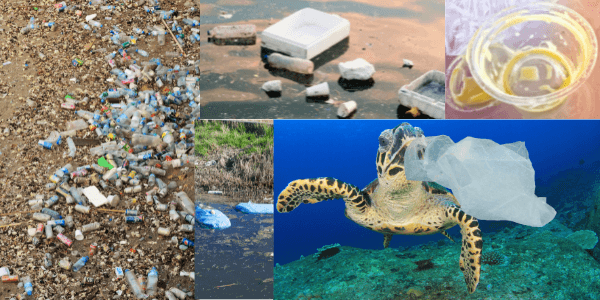Why Plastic Free?
Every Year, we use a huge loads of plastic only once, prior to discarding it – and quite a bit of it winds up in our seas.
Just 5% of plastics are recycled effectively while 40% end up in landfill and a third in fragile ecosystems such as the oceans.
Together, we can make progress with this propensity and track down better answers for decrease our dependence on plastic.
The production cycle of plastic, which is derived from fossil fuels, has significant climate impacts. Because of the material’s durability, the environment, particularly the oceans, is groaning under the weight of discarded plastic.

What you should know about plastic pollution
- What might be compared to a waste vehicle brimming with plastic is unloaded into the sea consistently.
- Essentially all plastic at any point created still exists.
- Virtually all sea contamination comes from land.
- By 2050 it is projected that there will be more plastic than fish in the sea (by weight).
- One out of four fish tried contain plastic. This plastic is entering the order of things and winds up on our plates.
- A huge number of marine creatures are killed consistently from plastic pack litter when they botch plastic sacks for food like jellyfish.
- Plastic is connected to tumors, hindered invulnerability, endocrine disturbance and different diseases.
- Openness to plastic can affect fruitfulness, pregnancy, and can influence the embryo by obstructing testosterone, upsetting typical sexual turn of events. This disturbance isn’t regularly evident until adulthood and incorporates the expanded gamble of malignant growth.
How can you avoid plastic, and reduce plastic pollution?
Supplant plastic containers and single use cups
Glass is better for the climate, more expense proficient and can keep your beverage more sultry or colder longer.
Bid farewell to staple sacks
Plastic staple sacks can be supplanted with reusable ones. Indeed, even produce sacks.
Buying in bulk
Most items come in bundling that truly accumulates over the long haul. Purchasing in mass wipes out bundling waste. Reward: Use cotton packs for mass things to additionally decrease squander and limit plastic use.
Remove plastic from takeout
Decline sacks and utensils while requesting takeout. You can likewise request that eateries pack food in your own reusable compartments. Carry your movement utensil set with you for eating in a hurry.
